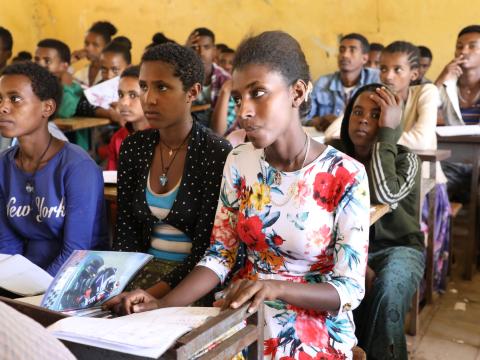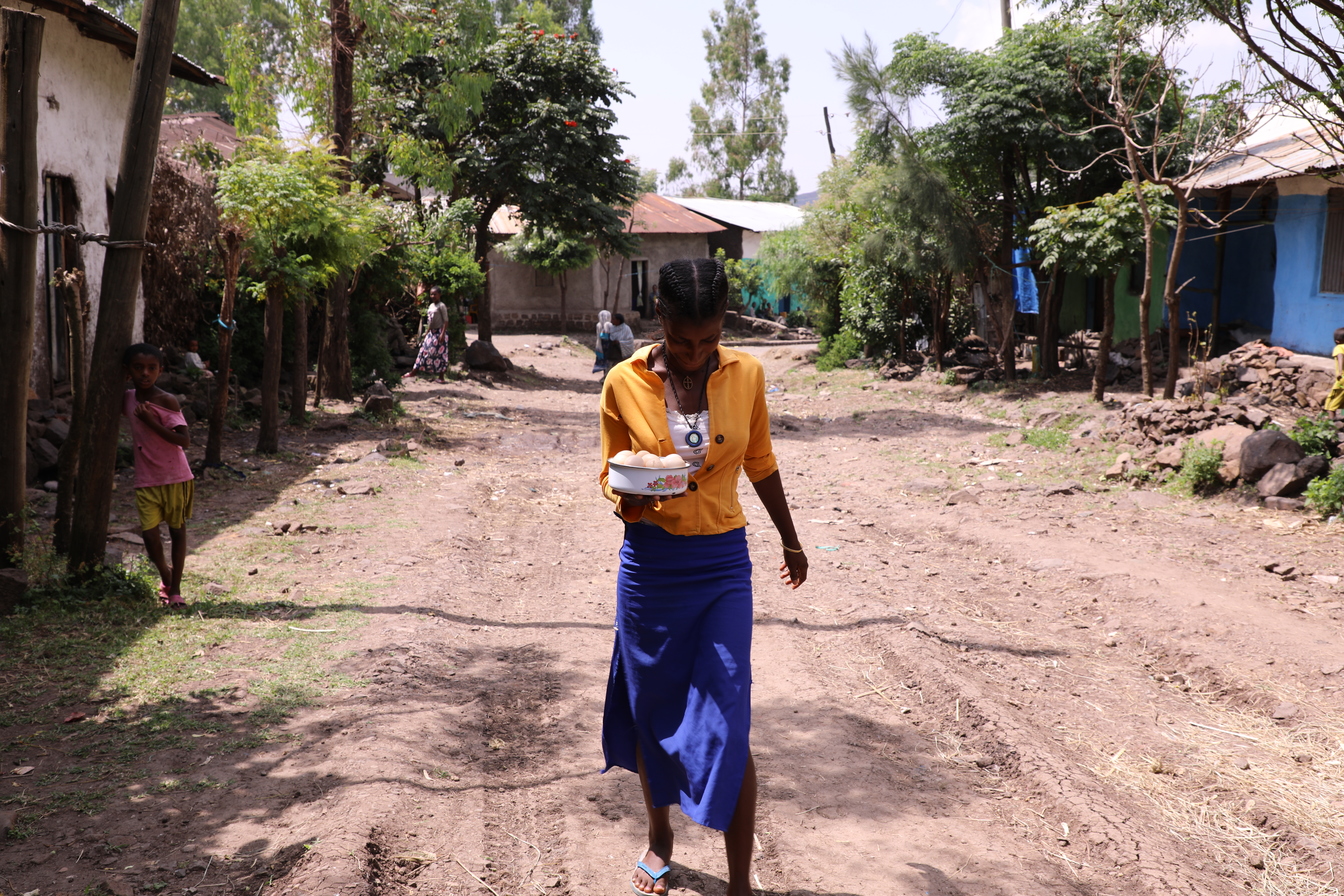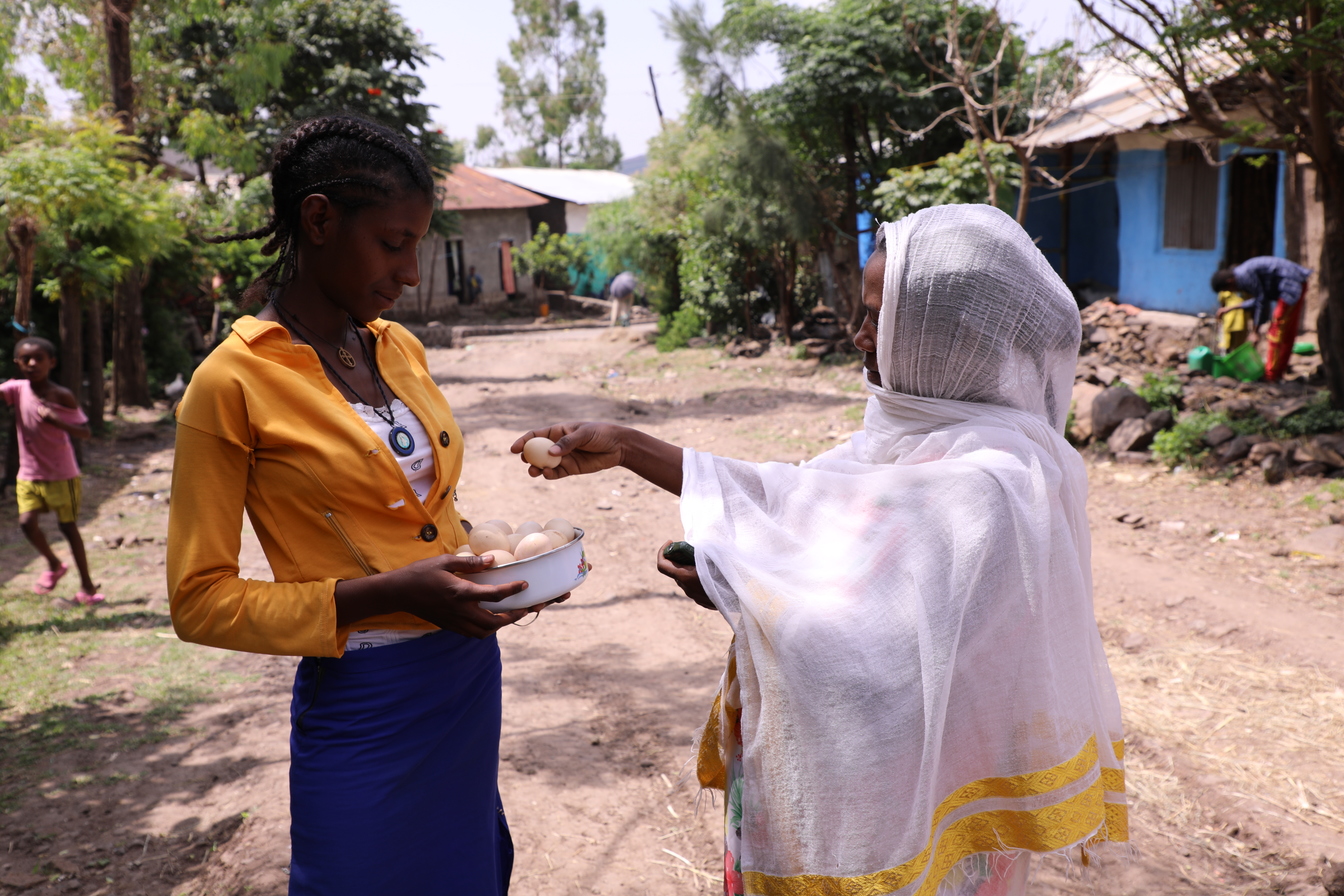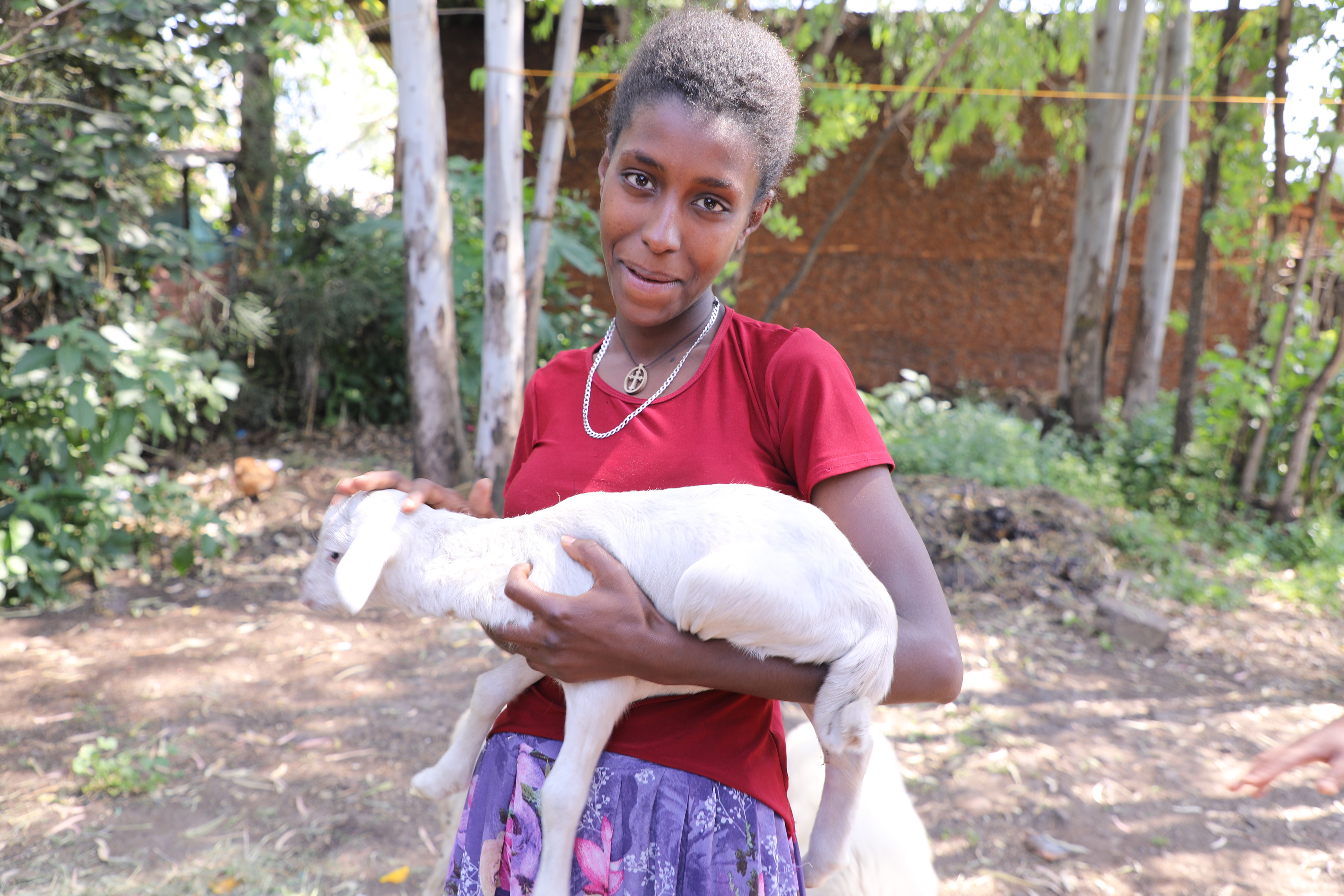From one of the worst forms of child labour, to a stable schoolgirl

The worst forms of child labour are defined by international standards as work that deprives children of their childhood, their potential, and their dignity, and is harmful to their physical and mental development. Child labour is a common practice in Ethiopia, with an estimated nearly 16 million children from the ages of five to 17 engaged in child labour. The Ministry of Labour and Social Affairs has also indicated that two out of five working children in Ethiopia are under six years of age.
Sixteen-year-old Mastewal lives in Libo Kemkem District, some 650km North of the capital, Addis Ababa, along the main highway to Gondar –the ancient and historical city of Northern Ethiopia. Her parents got divorced when she was only four, after which her mother left no stone unturned to feed her two daughters. As her daughters grow up, though, her earnings were not adequate to provide food and cover the cost of school fees and scholastic materials.
In a bid to help her mother, Mastewal engaged herself in child labour at the age of nine. As a child labourer, she used to roast peas/beans, cook eggs and boil potatoes and sell the foodstuffs roving from place to place on the street after school, from 1:00pm to 10:00pm, carrying them in her hands.

Understandably, running the business as a young girl was not an easy task for her. She was confronted with several challenges, as she recalls.
“I was selling the food holding on an open plate. Some young boys used to pick the food and run away without paying. Some of them forcefully snatched the coins from my hand and ran away", she says. "Some others used to take food from my plate and eat but when payment time would come, they paid me less. I had to struggle with all those encounters. I would sometimes cry for help, and other times report the case to the police in an attempt to get my money back. However, the chance of reimbursement was very low, whichever way.”

Mastewal did not have a fixed station for selling the cooked food. She would have to walk long distances in search of customers. This would greatly weaken her; she was unable to study and do her homework. “When I went home at the end of the day, I would always feel exhausted and run to my bed to slumber", she says. "I had no stamina for studying my books and doing homework. My schoolteachers did not understand my problem. I used to feel sad and cry for not having someone who could understand my situation.”
The teenager would have to stay on the street for nine hours on average until she would finish selling the entire cooked food of the day. Otherwise, the cooked food would go bad, leading her into bankruptcy.
Staying such a long time in the evening for a young girl like Mastewal is very scary and invites many unfavourable experiences to her life. She says, “In the evening, I would encounter people with various personalities. I would meet intoxicated people who order some foodstuff and refuse to pay after eating. I would meet a pickpocket who would attempt to steal my money and run away. I would also encounter some youngster who wanted to have some kind of sexual affair with me by force.”
In response to Mastewal's disastrous challenges, World Vision, through its collaboration with partners co-implementing the Partnership Against Child Exploitation (PACE) project, started to support 1,350 children engaged in the worst forms of child labour (in Dera, Libo kemkem and Gonder Zuria districts) with scholastic materials and school uniforms in 2020. It provided the parents of these children with startup capital that will help them to generate income and sustainably feed their children.
Mastewal has, through this project, received scholastic materials, school uniforms, and two sheep for rearing. She is delighted to get this opportunity and grateful to World Vision.
“I lack words as to how I can say thank you to World Vision for taking me out of the worst form of child labour", she says. "I no longer go out to sell foodstuff. All the worries, weariness, and threats coming out of child labour have gone from my life. I am now happily attending school just like any schoolchildren.”
Since she got out of child labour, Mastewal's school performance has improved. “I have ample time to study for my lessons, and do assignments on time. I scored a very good marks in the eighth-grade national examination and was promoted to grade nine. I am now enjoying grade nine education. I am confident that I will achieve my dream of becoming a medical doctor.”
Mastewal also enjoys taking care of the sheep that she received from the PACE project. The sheep have multiplied and are four now. She says, “The sheep provision has given me a bright hope to support me with school expenses. I will excitedly take care of and raise them. When I need school materials and clothes, I will sell some and fulfil my needs.”

Across the world, World Vision works with various partners and communities to tackle the root causes of injustice and poverty. Our mission is transforming the lives of vulnerable children- turning their frown into smiles. Click here to read more about our work on child protection.